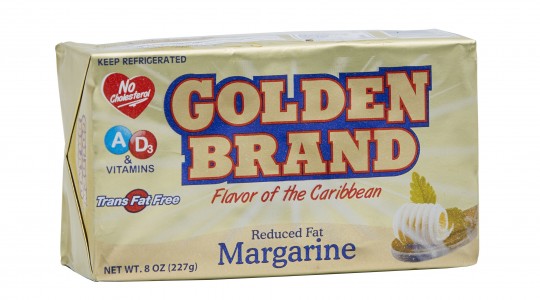
The debate about whether margarine or butter is best for
your health is ongoing. Unfortunately, there is no clear-cut answer. There is
not a truly healthful option when it comes to butter or margarine
- · The choice is really between trans fats (margarine) or saturated fats (butter).
- · Trans fats raise bad cholesterol (LDL), whilst lowering good cholesterol (HDL).
- · Saturated fats raise bad cholesterol (less so than trans fats) and do not affect HDL.
What's the difference between butter
and margarine?

Butter is a dairy
product made by churning cream or milk to separate the solid components from
the liquid. Butter is commonly used in cooking, baking, and as a spread.
The most important difference is that butter contains
saturated fat and many margarines contain trans fats. Trans fat raises LDL
(bad) cholesterol significantly while lowering HDL (good) cholesterol. Saturated
fat also raises LDL (bad) cholesterol, but less than trans fats, and does not
affect HDL.
Adding butter to foods adds calories you may not necessarily
think about. That being said, butter can be important in a meal because it adds
a fat source. Our body needs fat to function and absorb nutrients; fat also
provides a feeling of satiety in meals - if you eat a meal without any fat, you
are likely to feel hungry again shortly after.
Butter is simply made of pasteurized cream. Sometimes, salt
is added. In countries where cows are grass-fed, butter consumption is
associated with a dramatic reduction in heart disease risk.
Grass-fed dairy products are much higher in Vitamin K2 and
omega-3 fatty acids, both of which are important for heart health. Grass-fed
butter also contains conjugated linoleic acid (CLA), which helps improve body
composition and protect against cancer. Short and medium-chain triglycerides
are also present which are helpful for the gut bacteria, immune function, and
metabolism. Regular or non-grass-fed butter contains significantly less, if
any, of these nutrients. Cholesterol is found only in animal products, and
coconut and palm oil. Most margarines contain little or no cholesterol, whereas
butter contains a significant amount of cholesterol.

Margarine was
developed as a substitute for butter and is made from plant-based oils, such as
canola oil, palm fruit oil, and soybean oil. Margarines can contain a range of ingredients. Salt and
other compounds that keep the flavour and texture of margarine acceptable to
the consumer such as maltodextrin, soy lecithin, and mono- or diglycerides are
commonly added. Oils such as olive oil, flaxseed oil, and fish oil may also
be used.
Some kinds of margarine are meant to be used as a spread
only and should not be used for baking or cooking. Also, some margarine contains
phytosterols which compete with cholesterol for absorption in the body,
reducing cholesterol absorption and therefore reducing blood cholesterol.
Margarines with phytosterols contain a blend of oils such as olive oil or
flaxseed oil.
So, in conclusion, having both on hand, and alternating
margarine with grass-fed butter might allow you to reap the benefits of both
without contributing to excessive saturated fat intake. Your own health goals,
medical conditions, and taste preferences should guide you.
Links:

Comments
Post a Comment